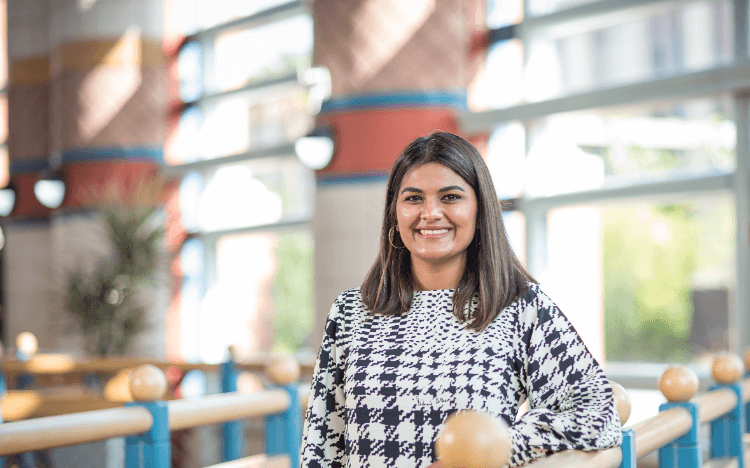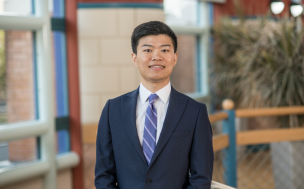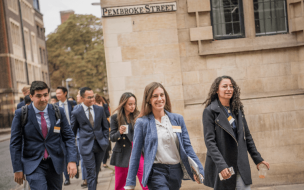Participating in experiential learning opportunities at business school is a great way to gain invaluable experiences, build your network, and accelerate your career growth.
A consulting project is a chance to work on an existing business problem and develop solutions for a range of companies while you study for your degree.
We spoke with an alum from the University of Cambridge Judge Business School (CJBS) to learn about how experiential learning shaped her business career at UBS.
An opportunity to learn new skills via the Cambridge MBA
A consulting project can set you up with many of the skills that are valued by employers today. In fact, modern hiring trends are less focused on academic achievements, and are instead more concerned with a candidate's experience and transferable skills.
While business school provides you with a grounding in theoretical and academic concepts, experiential learning opportunities will solidify your learning and deepen your understanding of business concepts.
Studies show that the knowledge retention rate from experiential learning reaches as high as 90%, making experiential learning opportunities a great way to develop your skills and bridge the gap between theory and practice.
Akansha Goyal is an MBA graduate from Cambridge Judge Business School and a product manager at investment banking and financial services company UBS. She says the consulting project she took part in during her MBA degree was a great opportunity to branch outside of her comfort zone and gain new skills.
“Cambridge Judge stood out to me because of its focus on immersive learning. I knew that I wanted to go outside of my comfort zone and experiment in an area that I don’t have a lot of experience in,” Akansha says.
Cambridge Judge offers students the chance to partner with government, industry, and non-profit organizations to work as a consultant on a management-based issue.
Akansha chose to do her consulting project with World Rugby—the world governing body of Rugby Union. During her consulting project, Akansha worked in a team to devise strategies to help the company's market entry strategy leading up to the 2031 Rugby World Cup.
Akansha was able to meet different members of the company and work on developing business strategies.
“It was a really interesting experience for me because I knew nothing about the sport. That’s what the MBA does: it allows you to try new things and expand on new skills,” she says.
Becoming a better business leader after the Cambridge MBA
A consulting project can broaden your horizons and equip you with skills necessary to thrive in a diverse business environment.
This is because consulting projects are an opportunity to work across different industries, gain exposure to new sectors, and work alongside people from different cultures and backgrounds.
As you collaborate with international teams and companies, you’ll gain exposure to a variety of cultural perspectives. This is an increasingly vital skill that will help you succeed when leading diverse teams, working with different cultures or negotiating in global business ventures.
“It helped me work with a diverse set of people and gave me the confidence to develop a professional relationship with anyone, which has helped me in the corporate world,” says Akansha.
During the consulting project at Cambridge, students work closely in small teams for a 4-week period to analyze business and strategic issues, generating solutions together.
“The experience also taught me how to ask the right questions and how to expand my own perspective and develop my business skills,” says Akansha.
The consulting project was not the only experiential learning opportunity that Akansha made the most out of while at business school.
Through her connections at Cambridge Judge Business School, Akansha was also able to fill an MBA internship at RegGenome as a product manager with a commercialization focus during the summer period.
She says the internship was another example of how her time at business school equipped her with the diverse skills necessary to thrive in the workplace.
“Before business school, my commercial experience was lacking. The MBA internship gave me an opportunity to focus on those commercialization aspects and diversify my skill set,” she says.
Taking on a consulting project at business school can expose you to a multitude of benefits that extend beyond the scope of academic learning. Experiential learning can be a powerful tool for fostering a global mindset, developing business expertise, and accelerating your career, concludes Akansha.








